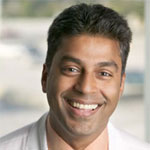Experts say more than 90% of eye injuries can be prevented by simply taking a few precautions and wearing safety glasses. Those can be with corrective lenses or without any power. Either way, the lenses have to be made from Polycarbonate or Trivex material.
If you use a lawn mower, leaf-blower, drill or similar power tools, you need protective eyewear. These glasses should have a snug, wrap-style frame to decrease the likelihood of small, airborne particles getting behind the lenses.
WORKPLACE EYE SAFETY PROGRAMS
In U.S. workplaces that involve any kind of airborne particles or noxious chemicals, employers must adhere to Occupational Safety and Health Administration (OSHA) guidelines for protective eyewear and emergency eye care. Most protective eyewear standards require employers to provide prescription safety lenses to employees who need corrective eyewear.
LASER POINTERS, CHAMPAGNE CORKS AND FIREWORKS
Be careful with household chemicals, since many can burn your eyes. Always wear goggles, read instructions carefully, work in well ventilated areas and make sure the nozzle is pointed away from you.
Always wear appropriate eye protection when playing sports (protective sports eyewear). Have fun in the sun, but always wear sunglasses that block 99 to 100 percent of UV-A and UV-B rays when outdoors for extended times. Looking directly at the light beam of a laser pointer can cause temporary vision loss and even permanent damage to the retina. Champagne corks.
During a celebration, you’re probably not thinking about eye damage. But a fl ying cork from a bottle of champagne can rupture an eyeball or cause a detached retina, both of which can cause blindness.
NEVER USE FIREWORKS. EVEN SPARKLERS BURN HOT ENOUGH TO MELT GOLD!
Safety is important and taking the necessary precautions to protect your eyes can help you prevent injuries. Preventing Eye Injuriesyour eyes can help you prevent injuries.

